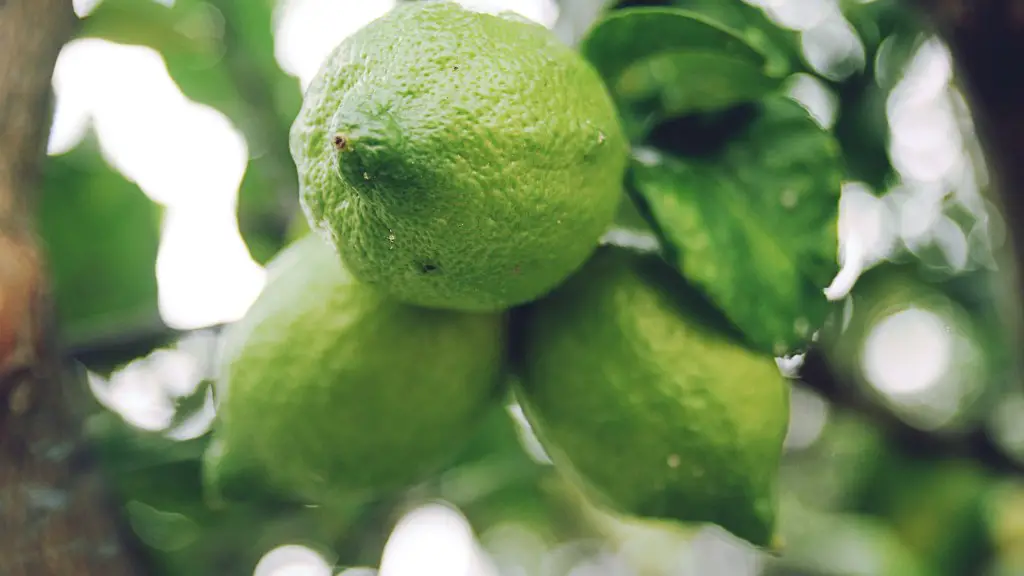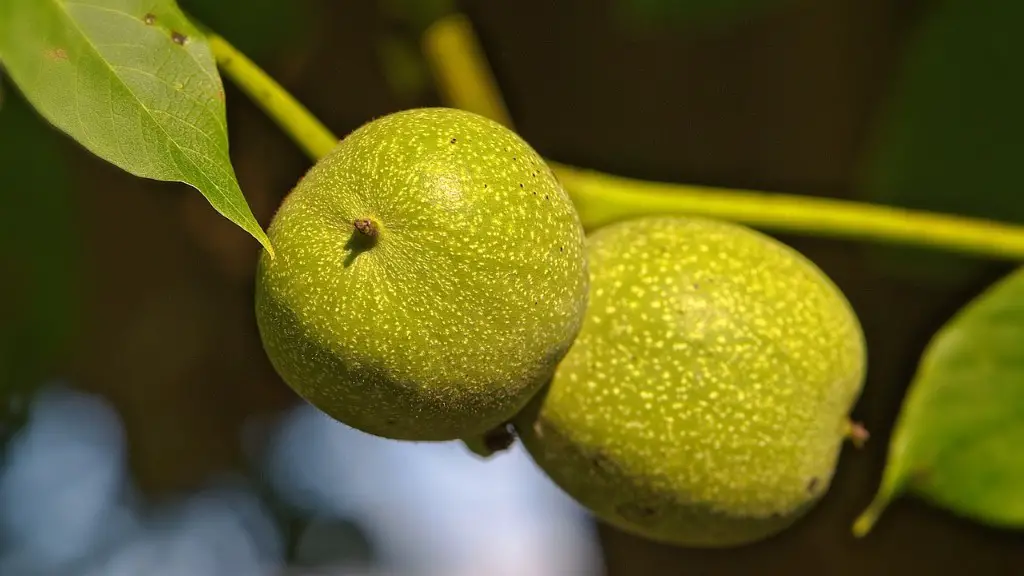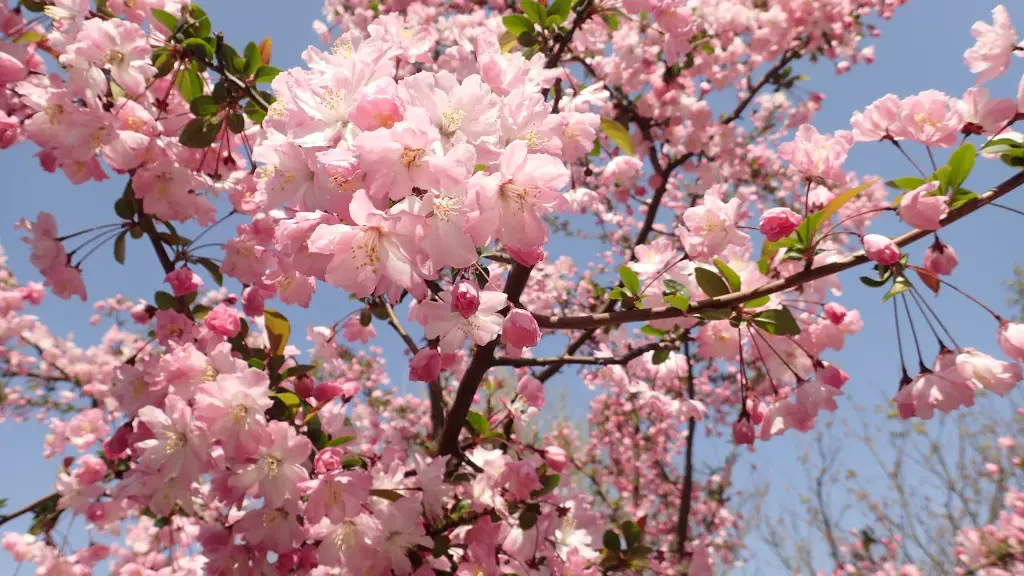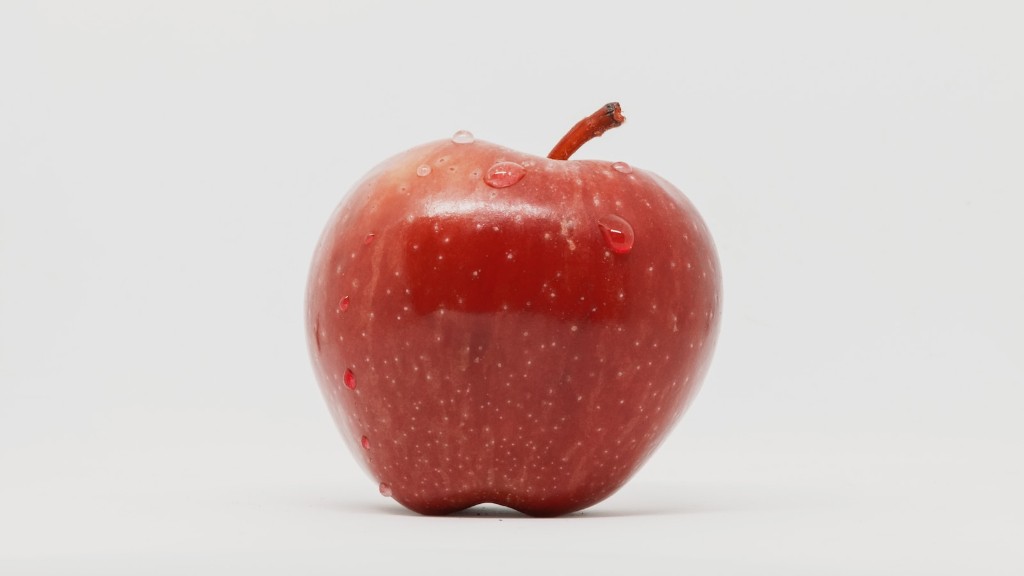Does a lemon tree qualify as a perennial? The answer to this question is a resounding yes – the lemon tree is considered to be a perennial. Perennials are plants that live for more than two years, and for this reason, the lemon tree fits the bill perfectly. This tree is capable of producing fruit for many years on end, although of course the exact number of years will vary depending on environmental factors and the health of the tree.
Lemon trees usually take between three and five years to reach maturity and begin producing fruit, with some sources suggesting that it can take even longer in certain climates. The tree’s lifespan can be extended with proper care, such as regular pruning, fertilization, and pest control. In favorable conditions, some lemon trees have been known to live for up to 50 years.
The lemon tree can be grown in various climates and soils as long as there isn’t a frost. It needs plenty of sunshine and moderate temperatures, as well as a good amount of water. The ideal soil pH for a lemon tree is between 6 and 6.5, although it is tolerant to slightly higher and lower levels. In sandy areas, its roots grow deeper into the ground to find the moisture and minerals it needs.
Lemon trees need to be pruned on a regular basis to keep them from growing out of control. The pruning should be done after the tree has finished flowering, but before the start of its fruiting season, which is generally in springtime. Pruning should remove only dead wood, as well as any branches that are diseased or overcrowding the tree.
Fertilizer is also necessary for maintaining a lemon tree. Applying an organic source of nitrogen to the soil once a month or so is usually enough. Consequently, mulches made of organic materials such as straw or dried grass clippings can also be used to enrich the soil and help keep pests away.
Finally, pests like mold, mildew, aphids, and mites can be an issue and can affect the tree’s health and fruit production. A natural pesticide sprayed onto the leaves and soil can help control these pests, although it is important to ensure that the product is safe for use on edible fruits.
Weed Control
Maintaining your lemon tree also involves controlling weeds. Weeds can compete with the tree for resources such as water and nutrients, so it is important to keep them at bay. Mechanical methods, such as hoeing and hand pulling, are often the most effective way of controlling weeds, while chemical herbicides can also be used in situations where the weeds are very extensive.
Weeds that appear close to the trunk of the tree can be killed by applying a herbicide in a band two feet away from the trunk. If the weeds appear further away from the trunk, a broadcast application can be used. In either case, the herbicide should be applied according to the manufacturer’s instructions, and a backlog of mulch can help prevent new weeds from emerging.
Organic mulch can also help keep weeds in check, as it creates a physical barrier that restricts the growth of certain weed species. A thick layer of mulch, made of organic material, can also provide insulation and help keep the soil moist. If any weeds do manage to break through the mulch barrier, they should be pulled out before they can spread.
Finally, it is important to remember that all chemicals used on or near the lemon tree must be labelled safe for use on edible fruit trees. If in doubt, it is best to consult with a plant expert before applying any chemicals.
Pest Management
Managing pests is another important aspect of lemon tree maintenance. Aphids, mealybugs, mites, thrips, and whiteflies can be a problem, although there are some predators that will help to keep them in check, such as ladybirds and spiders. However, if the problem becomes too bad, a pesticide can be used.
When using a pesticide, it is important to select one that is safe for use on edible fruit trees. An insecticidal soap or horticultural oil can be effective in killing the pests, and should be applied according to the instructions on the label. It is best to avoid using any pesticides if possible, as this can damage beneficial insects and hurt the ecosystem.
In addition to pests, diseases can also be a problem for lemon trees. These can include canker, blights, rust, and wilt, among others. A fungicide may be necessary to treat these diseases, although it is important to select a product specifically designed for citrus trees. Following the label instructions carefully is essential for the safe and effective use of any chemical treatments.
Fertilization
Along with proper pest and weed control, fertilization plays an important role in maintaining the health of a lemon tree. The best time to fertilize a lemon tree is after it has finished flowering, but before its fruiting season begins. This usually occurs around late spring or early summer.
Organic fertilizers are generally considered to be the best choice for lemon trees, as they encourage healthy soil and provide the tree with the necessary minerals and nutrients. Manures, composts, and mulches are all excellent sources of organic fertilizers that can be used. Chemical fertilizers should only be used in consultation with an expert and only when absolutely necessary.
When applying fertilizer, it is important to take into account the age of the tree as well as the soil type and amount of irrigation. Applying too much fertilizer to a lemon tree can damage the soil and deprive the tree of necessary nutrients, so it is important to follow the instructions on the label carefully.
Finally, it is best to limit the application of fertilizer to a couple of times during the tree’s growing season. Applying more often can adversely affect the health of the tree and its yields.
Watering
Lemon trees thrive in well-drained soil, which means that water must be applied in small amounts throughout the year. The best time to water is in the morning, as this allows the soil to dry before nightfall and helps to prevent the growth of harmful fungi. The amount of water needed will vary depending on the climate and the type of soil, but it is usually best to err on the side of caution and water less rather than too much.
It is also important to note that a lemon tree has different water requirements over the course of its lifetime. During its first few years of life, the tree needs more frequent, light applications of water to help it become established. Once the tree is a few years old, however, water should only be applied when needed, as overwatering can cause root rot, especially in sandy soils.
Finally, it is important to remember that in order to ensure a healthy soil, some organic material should be added each year. Organic matter helps improve the soil’s ability to absorb and retain water, as well as providing essential nutrients for the tree.
Environmental Protection
Ensuring that the environment in which the lemon tree is planted is suitable is another key factor in keeping the tree healthy and productive. Lemon trees cannot tolerate frost, so cold temperatures must be avoided. If the area is too windy, protection such as windbreaks should be provided.
Lemon trees also need full sun, preferably unimpeded by buildings or trees. Shade cloths may be necessary in areas where the tree gets too much sun, or a more sheltered location can be chosen to ensure the optimal level of sunlight.
Of course, if you live in an especially warm climate, it is essential to protect the lemon tree from too much heat. Trees in hot climates should be planted near a wall or fence, as this will provide some protection against the sun’s rays. Mulch can also help to keep temperatures low and the soil moist, while also protecting the tree from weeds and pests.
Finally, it is important to keep in mind that lemon trees can be sensitive to harsh chemicals and pollutants, and so it is best to avoid planting them near roadsides or heavy industry. Doing so can reduce the tree’s yield and shorten its lifespan.




